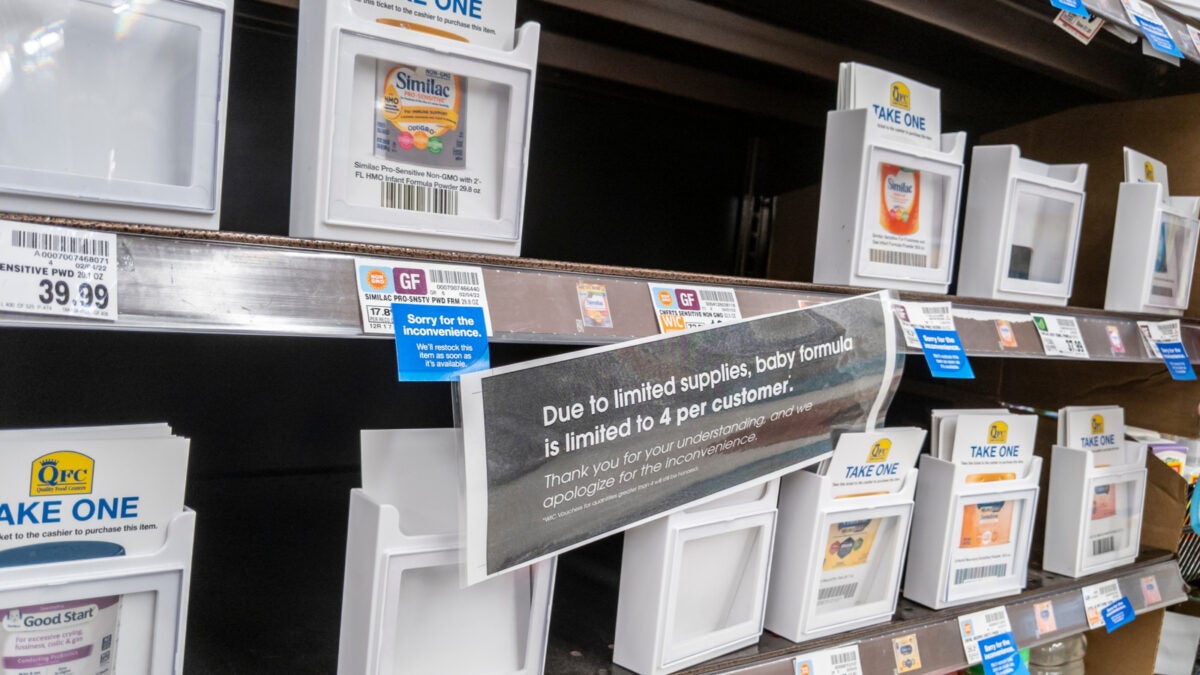Abbott Laboratories has turned to air cargo to help overcome a domestic shortage of baby formula exacerbated by a February recall due to suspected contamination and the subsequent shutdown of its Sturgis, Michigan, plant.
The beleaguered maker of Similac and other formula brands said Friday it is taking a number of steps to alleviate formula supply problems, with a focus on increasing production at its Cootehill, Ireland, facility. It has air shipped millions of cans of infant formula powder from the plant to the U.S. since February.
Abbott (NYSE: ABT) spokesperson Brandi Martin declined to provide additional details about the airfreight operation.
The Irish Examiner reported in late April that Abbott Laboratories is making daily air deliveries from Ireland and this year will triple the amount of powder imported from Ireland.

The nationwide out-of-stock average for baby formula reached 43% for the week ending May 8, according to retail technology firm Datasembly. In several major metro areas the shortfall of formula was 50%. Supply chain disruptions that impacted packaging and raw materials began to slow formula deliveries last year and the situation got worse after the invasion of Ukraine this year. Many parents are desperately searching to find formula for their children.
Abbott Nutrition, the largest infant formula manufacturer in the U.S., recalled several lines of powdered formula in mid-February over concerns about bacterial contamination at the Sturgis facility after four infants fell ill and two died.
The Biden administration has redoubled efforts to make more formula available in the face of criticism it was slow to react to the shortage. President Biden last week convened a call with manufacturers and retailers to discuss ways to boost production and other initiatives, such as enforcement against price gouging and importing more baby formula from abroad.
The U.S. produces 98% of the infant formula it consumes, but the FDA announced a streamlined import entry review process for certain products coming from facilities in Mexico, Chile, Ireland and the Netherlands with favorable inspection records.
The administration is strongly considering invoking the Defense Production Act to try to ease the pressure over time, according to CNN and other news outlets.
Abbott said it has also switched manufacturing lines at its Columbus, Ohio, plant to boost production of Similac liquid ready-to-feed and is prioritizing production of infant formula at other manufacturing plants.
The Sturgis plant could reopen within two weeks after addressing Food and Drug Administration concerns, but it will take at least six to eight weeks until the formula reaches stores, the company said.
Abbott is an $11.9 billion pharmaceutical and medical device company.
FW Now: When will the baby formula shortage be alleviated?
Click here for more American Shipper/FreightWaves stories by Eric Kulisch.
RELATED NEWS:
US military enlists commercial cargo airlines in logistics blitz to send weapons to Ukraine







